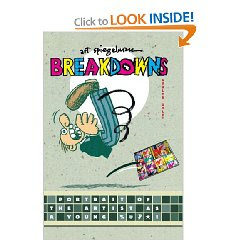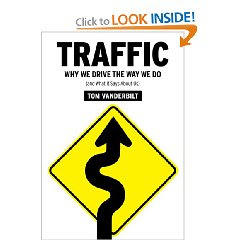 Filling in for Pops two days running, so this will be a quick hit and run. A two-fer, though. These are two books I received at Christmas.
Filling in for Pops two days running, so this will be a quick hit and run. A two-fer, though. These are two books I received at Christmas.The first is Art Spiegelman's Breakdowns. It's an over sized, hard bound collection of some of his early work. A lot of it is the self absorbed musings of a young man of the '60s one would expect from the underground comix world, but in amongst it are some early pages of what would eventually become Maus. I suppose it's important to know thyself before getting into the lives of others, especially your parents, but a lot of this is important only to Spiegelman.
That being said, it's interesting to see the parts of the stories that involved his perspective of his interactions with his parents and how those interactions would later shape what he wrote in Maus. And, clearly, Spiegelman recognizes the fatuousness of a lot of his early work, what with his sub title of Portrait of the Artist as a Young %@&*! So, taking it in that vein, it's a very good read.
It's also a very adult read with graphic depictions of sex. That much is refreshing, to me. I'm not big on sex as a hidden activity, so whenever it's front and center as part of a good story, not just up there for titilation, it works for me. Still, unless your kids are familiar with falatio and intercourse, you might not want them reading this. Which Spiegelman is up front about. He's not presenting it as a kid's book. You can get it on Amazon for $18, if you're interested.
 The other Christmas book I just finished is Traffic: Why We Drive the Way We Do by Tom Vanderbilt. No illustrations in this one.
The other Christmas book I just finished is Traffic: Why We Drive the Way We Do by Tom Vanderbilt. No illustrations in this one. It's a statistics driven account of traffic habits and laws around the world, but Vanderbilt also traveled to many of the cities about which he writes to get a first hand view of the traffic and to talk to the traffic engineers who try to protect us from our selves.
Not surprisingly, the most difficult traffic, and the most dangerous, is in the notorious spots of Beijing, Moscow, New Delhi and Rome. Not that the US does very well either. With nearly 40,000 dead each year in traffic accidents in the US it's amazing how much blather there is in opposition to speed cameras. Hell, here in Maryland there's a movement afoot to put a just passed law allowing speed cameras only in construction and school zones up for referendum. As always, this sort of thing is cloaked in constitutional rights and the injustice of a non-human citing people for traffic tickets, but I've yet to find anything in the Constitution that addresses auto speeds. Might have something to do with them not being invented when the Founders were around and no amendments that took on the issue. The opponents always ignore the numbers that say speed cameras reduce speeds and save lives at a minimal cost.
Anyway, digressions aside, the books is a good read. Its ultimate conclusion that until technology reaches the point where cars drive themselves there will always be accidents and congestion is fairly obvious, but how he gets there is entertaining. It can be had on Amazon for under $17, too.
No comments:
Post a Comment